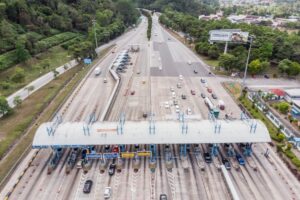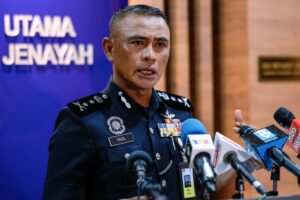GEORGE TOWN, Oct 24 — The recent controversy over alcohol being served during an alumni gathering at a secondary school in Ipoh has renewed attention on the rules for school halls leased out for private events.
On Thursday, Prime Minister Datuk Seri Anwar Ibrahim said that alcohol must not be served in schools — including after school hours and at events held in school halls — and that there would be no compromise on the matter.
In his remarks in the Dewan Rakyat, he said the educational environment must be safeguarded, even when school halls are rented by external parties.
The comments drew concern from the Chinese community, as halls in Chinese vernacular and independent schools are often rented out for community events such as weddings, cultural celebrations and fundraisers to help cover school expenses.
Several ministers, including Transport Minister Anthony Loke, Local Government Minister Nga Kor Ming, Science, Technology and Innovation Minister Chang Lih Kang, Human Resources Minister Steven Sim, and Tourism, Arts and Culture Minister Datuk Seri Tiong King Sing, echoed these concerns.
They stressed that the Prime Minister’s remarks should not affect halls managed by School Management Boards (LPS) or other privately run institutions.
The matter was put to rest after the Cabinet, in its meeting yesterday, decided to maintain existing regulations and allow current practices to continue unchanged.
Last year, a similar issue surfaced when a Chinese primary school in Selangor came under scrutiny for displaying a Tiger Beer logo at a fundraising concert.
At the time, the Education Ministry reiterated that a 2018 guideline — Circular Letter Ikhtisas No. 3/2018 — prohibits schools from receiving donations or sponsorships from alcohol, tobacco or gambling companies.
As it stands, there is no new directive affecting existing practices.
However, all schools remain bound by the 2018 guideline which restricts corporate sponsorships and promotional activities linked to alcohol.
The different types of Chinese-language schools in Malaysia
Communications Minister Fahmi Fadzil said the Cabinet noted that some Chinese schools receive full government assistance while others have facilities developed and maintained by their school boards or private entities.
“Therefore, certain provisions apply specifically to Chinese schools,” he said.
Here’s a look at the various types of schools and how they are funded.
- National schools
These are fully government-funded public schools — Sekolah Kebangsaan (SK) and Sekolah Menengah Kebangsaan (SMK) — owned and operated by the Ministry of Education.
They are under the ministry’s full jurisdiction.
- Government-aided schools
These are vernacular schools — Chinese (SJKC) and Tamil (SJKT) — typically built on privately donated land and receiving partial government funding.
They are managed by School Management Boards, known in Malay as Lembaga Pengelola Sekolah (LPS).
Such schools commonly organise community fundraising or rent out facilities to supplement operational costs.
- National-type secondary schools (SMJK and mission schools)
SMJK and mission schools follow the national syllabus and use Malay as the medium of instruction.
Their funding and land status vary, with some fully aided where land titles were surrendered to government, and others only partially aided.
Many have boards that help manage facilities and community engagement.
- Chinese independent high schools
These are privately managed institutions that use Mandarin as the main medium of instruction and are coordinated by the United Chinese School Committees’ Association of Malaysia (Dong Zong), which administers the Unified Examination Certificate (UEC).
They do not receive regular federal funding and rely primarily on school fees, donations and community support.





